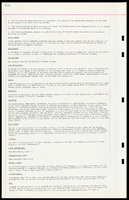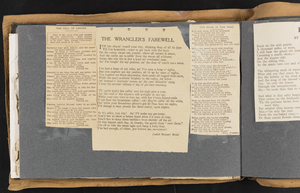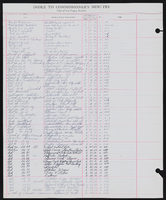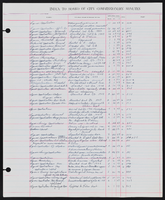Search the Special Collections and Archives Portal
Search Results

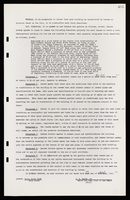
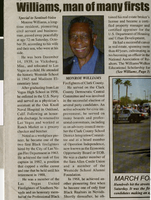
"Williams, man of many firsts": newspaper clipping from the Las Vegas Sentinel Voice
Date
Archival Collection
Description
Obituary for Monroe Williams in the October 25, 2012 edition of Las Vegas Sentinel Voice.
Text
Gerald Schaffer Professional Papers
Identifier
Abstract
The Gerald Schaffer Professional Papers (approximately 1949-1999) contain materials from Schaffer's time working as a political executive assistant, private sector consultant, and developer of commercial, residential, and gaming projects throughout Clark County, Nevada. The collection includes newspaper clippings, photographs, correspondence, and administrative files from Schaffer's time working as an executive assistant for Nevada Congressman Walter S. Baring Jr. Schaffer's work with organizations is represented through programs, photographs, and correspondence. Documents relating to his work as Commissioner of Public Housing on the Clark County Public Housing Authority, service as Clark County Planning Commissioner, and as a commercial and residential developer in Las Vegas are also present in the collection.
Archival Collection
Tom Hawley Papers
Identifier
Abstract
The Tom Hawley Papers (approximately 1955-2019) contain the personal papers of Las Vegas, Nevada based traffic and transportation reporter, Tom Hawley. The collection primarily includes physical and digital materials that represent Hawley's interests in Las Vegas history; transportation issues in the Las Vegas Valley, including the Las Vegas Monorail and Resort Corridor Project; and his work as a traffic and transportation reporter for KSNV Channel 3. Materials from KSNV include video clips and transcripts of
Archival Collection
June Monroe and Kazuko Atomura oral history interviews
Identifier
Abstract
Oral history interviews with June Monroe and Kazuko Atomura conducted by Cecilia Winchell and Stefani Evans on July 14 and July 19, 2022 for Reflections: the Las Vegas Asian American and Pacific Islander Oral History Project. In the first interview, Kazuko Atomura describes her childhood in Taiwan and Tokyo, Japan, and shares both happy and difficult mememories of that time. Atomura eventually moved to Los Angeles, California, where she reconnected with a man she previously met in Japan. She married him and together had their daughter, June Monroe, and another son while living in Corpus Christi, Texas. After difficult medical procedures involving Atomura's husband and Monroe's younger brother, Brian, the family relocated to Las Vegas, Nevada. Monroe recalls attending Las Vegas High School and Bonanza High School, and the struggle of making new friends as a young person.
In the second interview, the mother and daughter discuss racism, discrimination, and identity. Kazuko Atomura recalls her many experiences with discrimination as a result of both her appearance and language barriers. June Monroe discusses how she came to be proud of her Japanese heritage, while Atomura discusses some of the community activities she has been involved in since living in Las Vegas including the Japanese Culture Club and odori dancing. Then, both Atomura and Monroe discuss Monroe's brother, Brian, who received two kidney transplants; one from Monroe's father and one from Monroe herself. Atomura talks about the shrines she has built for Brian, the experience of him being on dialysis, care taking, and his final days. Monroe shares about her activism with organ donation, being regularly involved with the Nevada Donor Network and helping to pass significant pieces of legislation within the area of organ donation.
Digital audio available; no transcript available.
Archival Collection

